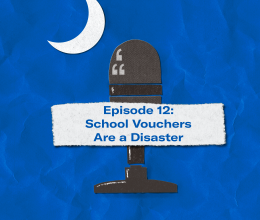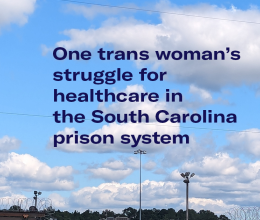
COLUMBIA – Leading medical and mental health care providers, South Carolina families, and expert witnesses spoke out Wednesday against House Bill 4624, which would deny medically necessary care to transgender youth. Those speaking against the bill vastly outnumbered those speaking in favor, overflowing into a second conference room and the State House lawn.
A Senate Medical Affairs subcommittee met Wednesday morning to consider H. 4624, which would ban hormone therapy. South Carolina is one of the only states in the region still allowing this medically necessary care, which is endorsed by leading professional medical organizations including the American Medical Association and American Academy of Pediatrics. It would also restrict care for transgender individuals up to age 26 due to a ban on the use of public funds.
After the Senate subcommittee cut off speakers who wanted to give testimony, the ACLU of South Carolina and our solidarity partners held an overflow testimony session on the south steps of the State House. An archived video of the livestream is available to view on our Facebook page.
"Gender-affirming care is life-saving suicide prevention care. As a pediatric critical care physician, my career has been dedicated to the well-being of children. A ban is in the interest of the hate group Alliance Defending Freedom, not children,” said Dr. Elizabeth Mack, MD MS, President of the SC Chapter of the American Academy of Pediatrics.
“After giving up 20 years of my life and spending over 5 years under the water in the Navy to protect the freedoms of everyone in this room, in this state and the United States of America, I am utterly disgusted by this bill. I never thought I would have to fight for my daughter's right to exist,” said David Bell, parent of a transgender youth from Charleston.
“Let me be clear: Being transgender is not pathological. The mental health of TGD (Transgender and Gender Diverse) people is impacted by the way their transness is responded to by society. We need to stop trying to erase trans people’s experience and start honoring people for who they are,” said Adam Sauceda, MA, LPC-S, RPT, Certified Member of World Professional Association for Transgender Health.
“If you want to protect kids, I urge you not to pass this bill because it will hurt kids. Think about the transgender kids who are already getting care – with the support of their parents. They’ll be forced to stop that care, putting their well-being at risk,” said Jace Woodrum, Executive Director of the ACLU of South Carolina.
“This cruel legislation is dressed up as a law to protect children, but this is really about government overreach and trying to erase transgender people. Restricting access to gender-affirming care jeopardizes the well-being of trans youth and denies their families the freedom to make deeply personal medical decisions,” said Kelli R. Parker, Director of Communications for the Women’s Rights & Empowerment Network (WREN).
The bill remains in the Senate Medical Affairs subcommittee, where lawmakers are expected to debate the bill on Thursday, February 15.
Proponents of H. 4624 continue to repeat easily disproven lies and distortions. A few basic fact checks can be found below.
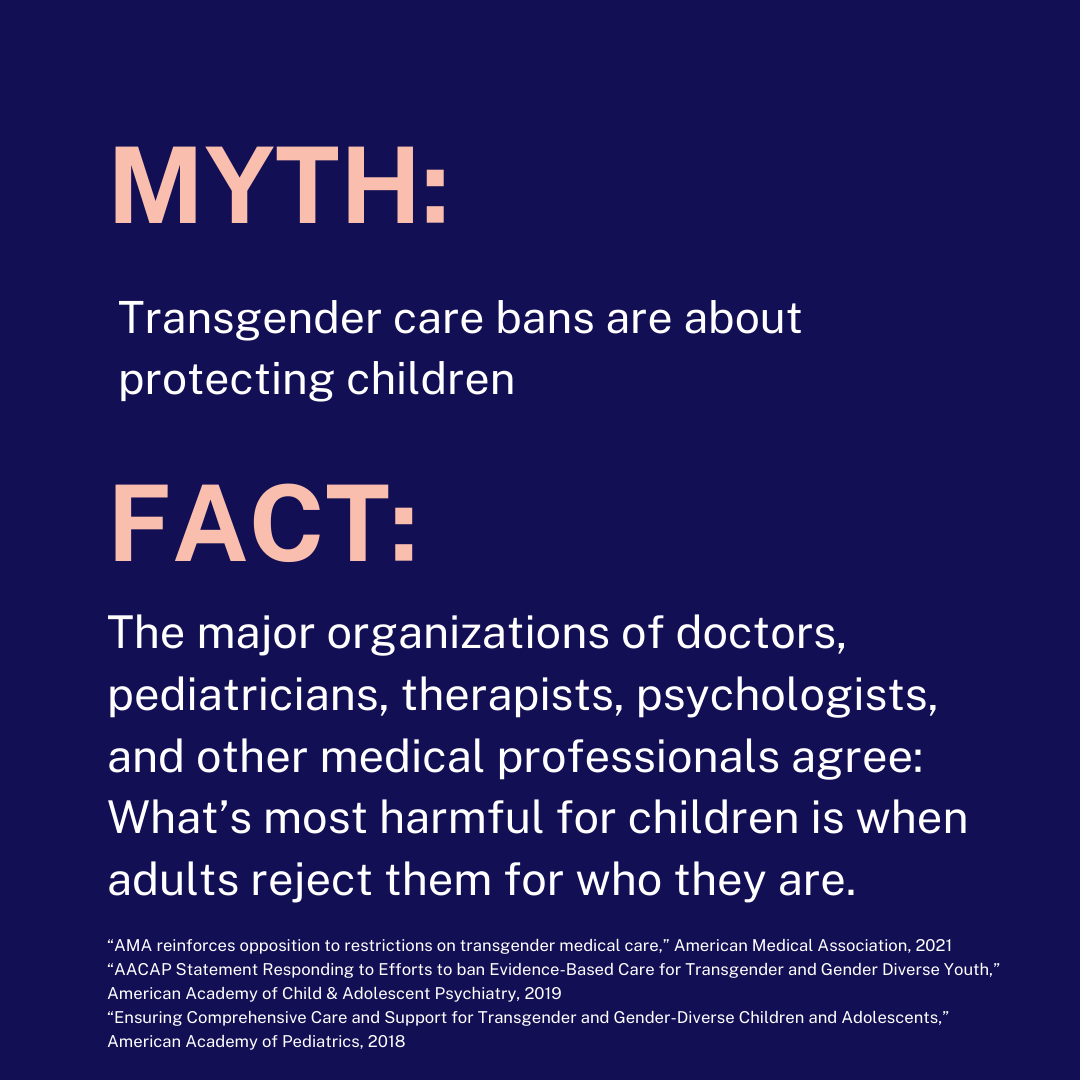
MYTH: Transgender care bans are about protecting children
FACT: The major organizations of doctors, pediatricians, therapists, psychologists, and other medical professionals agree: What's most harmful for children is when adults reject them for who they are.
"AMA reinforces opposition tor estrictions on transgender health care," American Medical Association, 2021. https://www.ama-assn.org/press-center/press-releases/ama-reinforces-opposition-restrictions-transgender-medical-care
"AACAP Statement Responding to Efforts to ban Evidence-Based Care for Transgender and Gender Diverse Youth," American Academy of Child & Adolsecent Psychiatry, 2019. https://www.aacap.org/AACAP/Latest_News/AACAP_Statement_Responding_to_Efforts-to_ban_Evidence-Based_Care_for_Transgender_and_Gender_Diverse.aspx
"Ensuring Comprehensive Care and Support for Transgender and Gender-Diverse Children and Adolsecents," American Academy of Pediatrics, 2018. https://publications.aap.org/pediatrics/article/142/4/e20182162/37381/Ensuring-Comprehensive-Care-and-Support-for
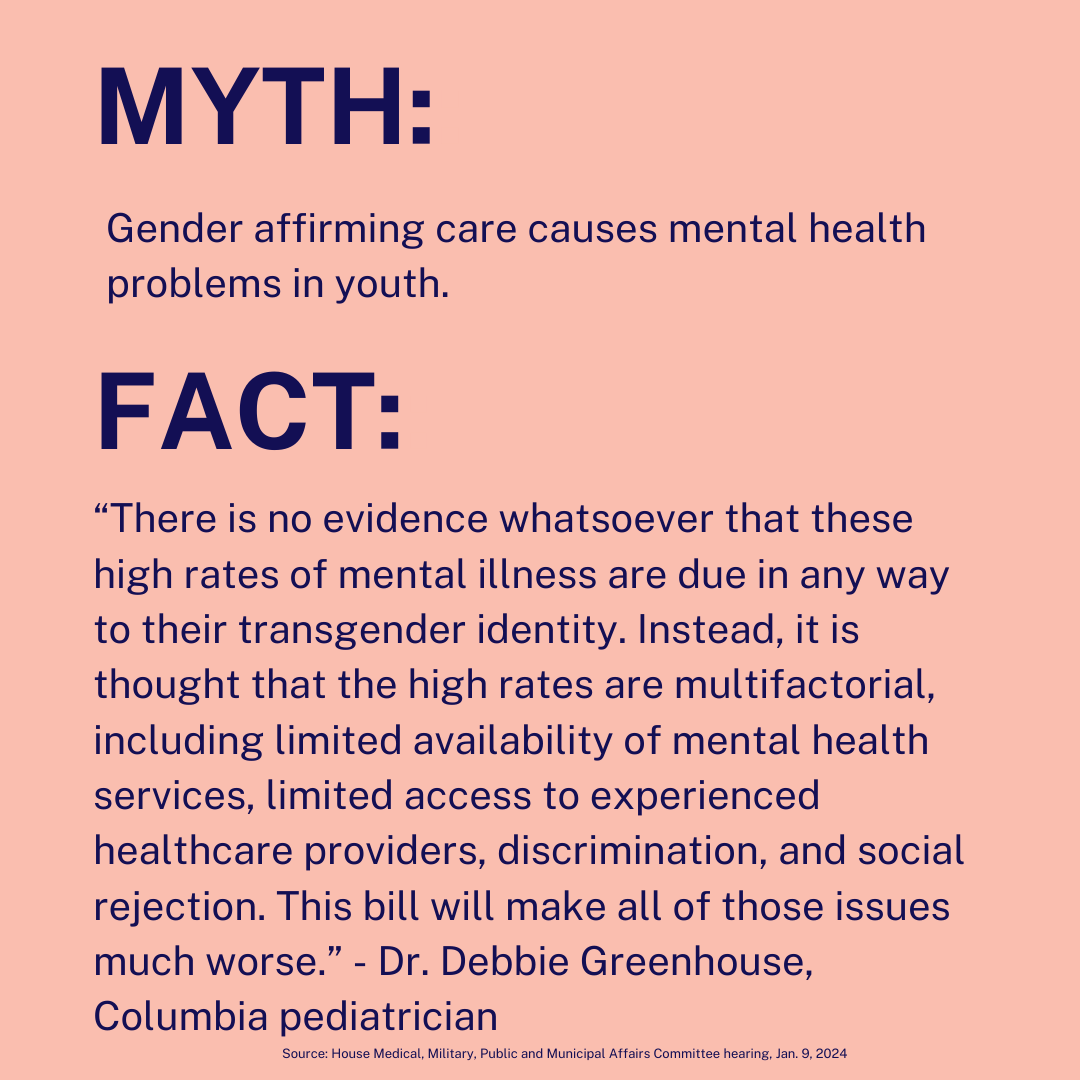
MYTH: Gender-affirming care causes mental health problems in youth.
FACT: “There is no evidence whatsoever that these high rates of mental illness are due in any way to their transgender identity. Instead, it is thought that the high rates are multifactorial, including limited availability of mental health services, limited access to experienced healthcare providers, discrimination, and social rejection. This bill will make all of those issues much worse.” - Dr. Debbie Greenhouse, Columbia pediatrician
Source: House Medical, Military, Public and Municipal Affairs Committee hearing, Jan. 9, 2024
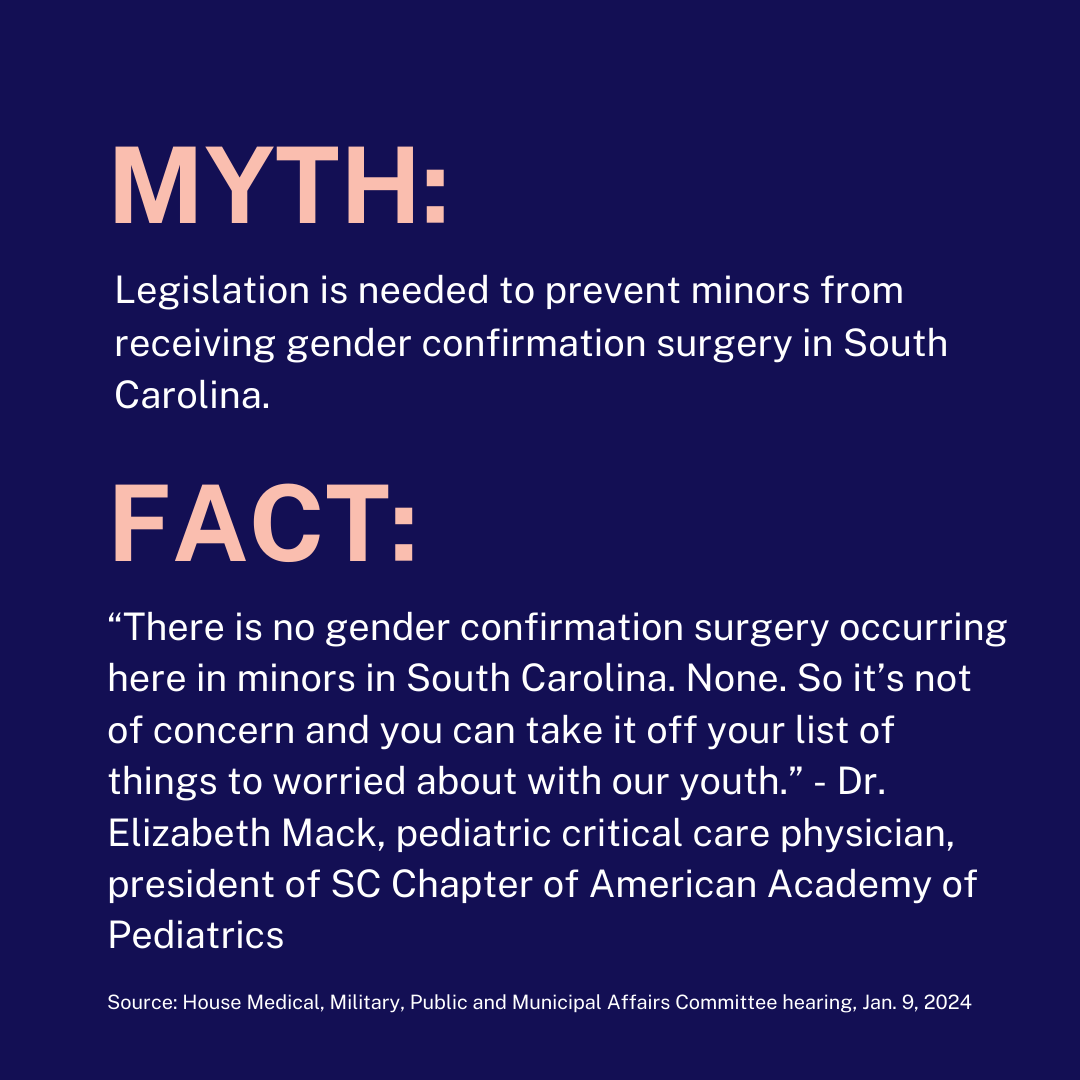
MYTH: Legislation is needed to prevent minors from receiving gender confirmation surgery in South Carolina.
FACT: “There is no gender confirmation surgery occurring here in minors in South Carolina. None. So it’s not of concern and you can take it off your list of things to worried about with our youth.” - Dr. Elizabeth Mack, pediatric critical care physician, president of SC Chapter of American Academy of Pediatrics
Source: House Medical, Military, Public and Municipal Affairs Committee hearing, Jan. 9, 2024
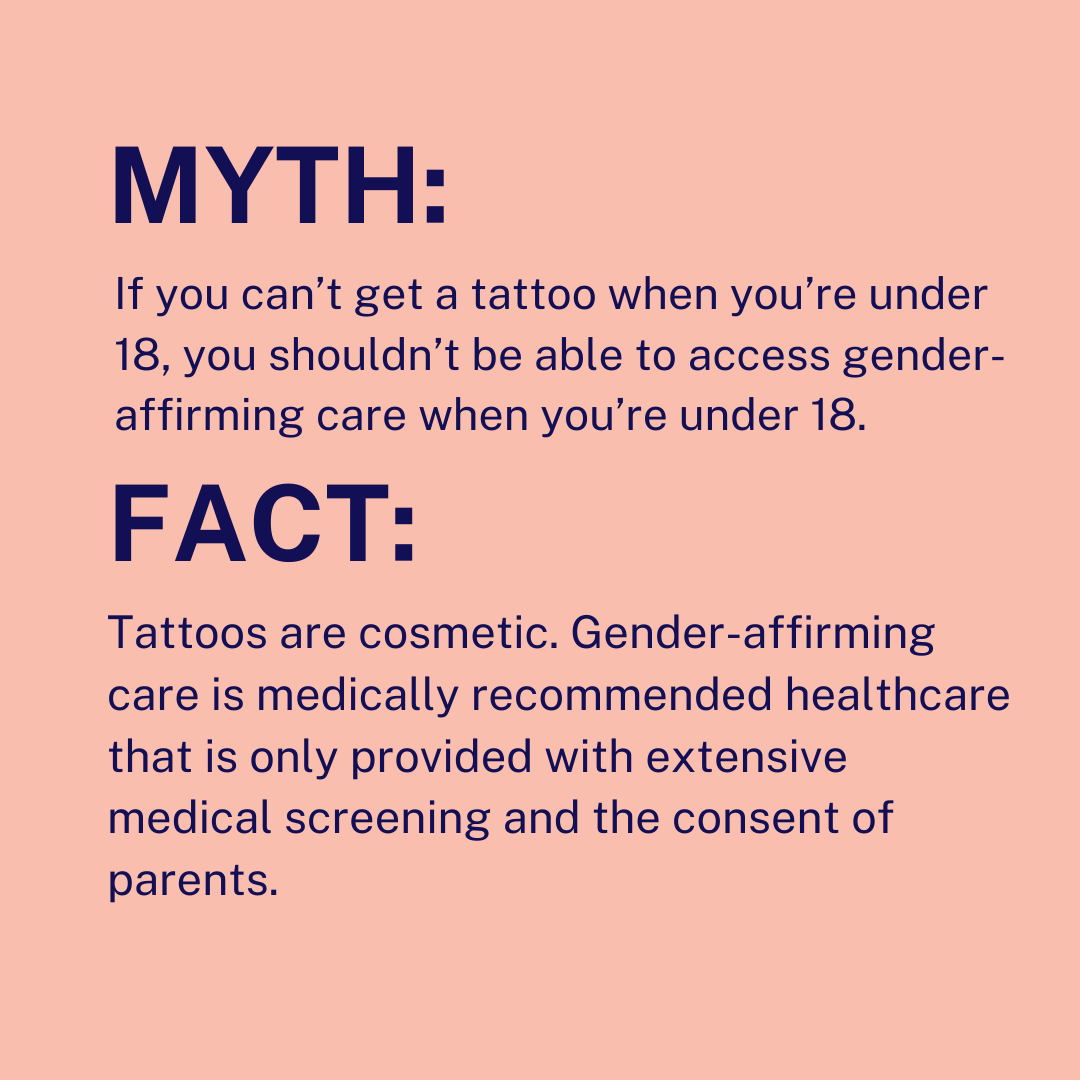
MYTH: If you can’t get a tattoo when you’re under 18, you shouldn’t be able to access gender-affirming care when you’re under 18.
FACT: Tattoos are cosmetic. Gender-affirming care is medically recommended healthcare that is only provided with extensive medical screening and the consent of parents.
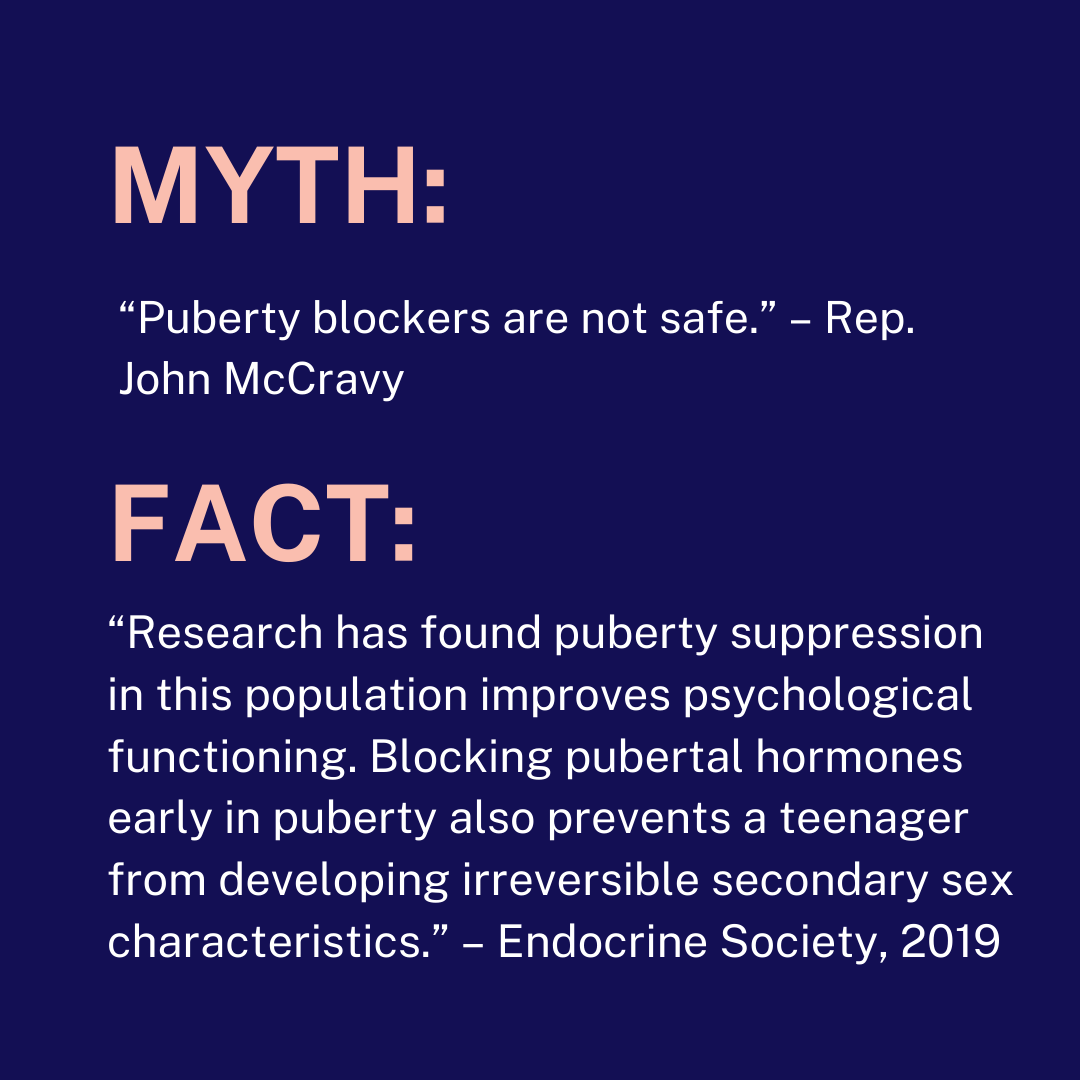
MYTH: “Puberty blockers are not safe.” – Rep. John McCravy
FACT: “Research has found puberty suppression in this population improves psychological functioning. Blocking pubertal hormones early in puberty also prevents a teenager from developing irreversible secondary sex characteristics.” – Endocrine Society, 2019
https://www.endocrine.org/news-and-advocacy/news-room/2019/transgender-custody-statement






